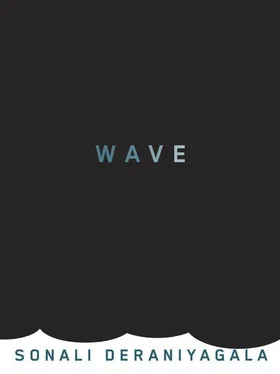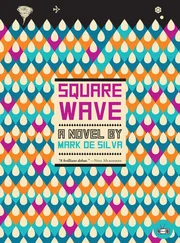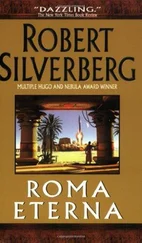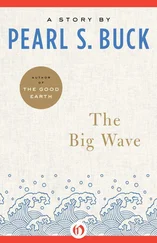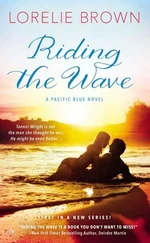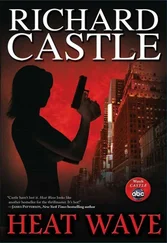With the alcohol I continued to take pills. Though my prescribed sleeping pills were rationed, this was Colombo, and I could go to the pharmacy around the corner, no prescription needed, and stock up. Zolpidem, Halcion, Seroquel. After my evening of drinking, I’d pop two pills, then another two, another four, four more, and two more again, in quick succession. Then a mug of gin. Then another pill, if I could raise my arm to reach for it. The next morning I couldn’t move, I felt faint when I stood up. I’d be shivery, my blood pressure dropped. My friend Keshini would sit on my bed, hands clasped, and talk sternly about my abuse of central nervous system depressants, I couldn’t go on doing this, my heart would stop. I looked at her blankly. Huh, getting all technical on me, I thought.
I liked mixing alcohol with the pills. It made me hallucinate. I watched plump black worms crawl out from the air conditioner and slide down the wall. Hundreds of them, as slowly they crawled. When I sat on the balcony, I could see a man in a white suit swinging from a tree. I chortled and pointed him out to my friends. They pretended not to be spooked. This was good. I felt crazy, and that’s how I thought I should be. My world gone in an instant, I need to be insane.
Half-drunk and half-drugged, I would search the Internet for images of the wave. Of scenes of destruction. Of dead bodies, mortuaries, mass graves. The more horrifying, the better. I’d gape at these for hours. I wanted to make it all real now, but I had to be drunk to even try to do that. There was also a numbness in me, due not to drink but to a deeper deadness, that I thought was preventing me from being truly insane. I wanted to spear it with these images. I searched on and on, hoping something would shock me into madness.
I kept Googling ways of killing myself. I needed to know how to do it successfully, I couldn’t mess it up. And each time I logged in to my laptop, I’d think: my password is the only thing in my life that hasn’t changed. I remembered Steve’s password, and I wished I hadn’t. It always was “rosebud” something. Rosebud.
Sometimes I’d panic, in my drugged-up state, about something that seemed very important. Like library books. What am I to do, we didn’t return the children’s library books, I’d keep saying, as I paced, or swayed, up and down the hall. Those books we took out from the Poetry Library in the South Bank. I’m never going back to London, I can’t return those books. I did relish this at times, having something normal to worry about.
My friends took me on short trips away from Colombo, hoping to restrain me a little. It didn’t always work. It was after plenty of vodka and tablets that I made Lester walk miles on a dark deserted beach one night. I knew a place where turtles came ashore to lay their eggs, and I wanted to show him. For more than an hour, I stumbled on that beach — I blamed the terrain, it was not flat, small dunes — I didn’t admit that I suspected we were lost. Lester had seen me with that bottle of vodka earlier in the evening and was concerned. The previous night I’d drunk so much that I’d vomited several times and passed out, and he’d sat by my bed until morning, worried I might choke in my sleep. He thought I was about to repeat this tonight as well. “What are we doing here?” he kept saying. “There is no one around, it’s too dark.” Finally we did come upon a green turtle, her soft eggs dropped into the huge pit she’d dug in the sand. We weren’t alone now, a couple of German tourists were watching too. I crawled quietly up to the turtle, peered into the pit, held an egg in my palm. It was warm. I thought this was magical. I made Lester have a look, but he’d had enough. “It’s Friday night,” he barked. “I could be in London, I could be down the pub. What am I doing on a godforsaken beach with some Germans, looking up a turtle’s arse?”

SRI LANKA, JULY — DECEMBER 2005
S omeone had removed the brass plate with my father’s name on it from the gray front wall. It had his name etched in black italics. I sat in the passenger seat of my friend Mary-Anne’s car, my eyes clinging to the holes in the wall where that brass plate was once nailed.
This had been my parents’ home in Colombo for some thirty-five years, and my childhood home. For my sons it was their home in Sri Lanka. They were giddy with excitement when we visited every summer and Christmas. Vik took his first steps here, and Malli, when younger, called the house “Sri Lanka.” And in our last year, 2004, when Steve and I had sabbaticals from our jobs and the four of us spent nine months in Colombo until September, this house was the hub of our children’s lives.
This was where we were to return to on the afternoon of the twenty-sixth of December. My mother had already given Saroja, our cook, the menu for dinner. This was where they didn’t come back to. Now, six months after the wave, I dared to set eyes on this house.
I was wary as I sat in Mary-Anne’s car, which was parked by our front wall. I didn’t want to look around. I was afraid of seeing too much. But I couldn’t help myself, I peeked.
Apart for the now nameless wall, the outside of the house had not changed. The tall iron gates still had spikes on top to keep burglars out. The rail on the balcony was white and safe. The mango tree I was parked under was the same mango tree that gave me an allergic reaction when it flowered, that sickly tree, dark blotches on its leaves. I noticed some small black stones on the driveway, and I remembered. Vik would juggle with these stones when he waited out here for the New Lanka Caterers van to come by selling kimbula paan —sugarcoated bread rolls shaped as crocodiles.
It was a humid, sticky afternoon, and Mary-Anne rolled down the car windows. From its perch on a nearby telephone post, a bulbul trilled. And I recalled the pair of red-vented bulbuls that nested in the lamp that hung in the car porch, just over the front wall. In the hollow of the glass lampshade, there would be a nest built with dried twigs and leaves and even a green drinking straw. The boys were spellbound by the arrival of fidgety chicks, still part covered in pale red shell. They watched the first flutter from that lamp many times, shooing off the mob of crows that rallied on the wall waiting for an unready chick to drop to the ground. Now I could see the two of them, placing a chair under the lamp to stand on and get a better look. Shoving each other off that chair. My turn now. I wanna see the baby bird. Get off.
A phone rang indoors. It made me shiver. It was the same phone, the same ring. From my father’s study on the other side of this wall, the phone kept ringing, no one picked it up. Now I could hear my father push back his chair to go tell my mother that it is her sister calling, again. I could hear him open the door of his study. A bunch of keys always dangled on that door. They tapped against the door’s glass panel when it was opened or shut. I could hear them jingle.
In the past months, I’d been unable to focus on the death of my parents. I’d held back thoughts of them, so utterly bewildered was I by the loss of my boys and Steve. Now, as I lingered outside this house, my parents emerged, a little.
Then I saw through the branches of the mango tree that the windows of the bedroom upstairs were closed. That was my bedroom when I was a child. Then Vik and Malli slept there when we visited. Getting them to bed in that room took forever. They’d call to my mother to plead for yet another fizzy drink, and she’d gladly oblige. They’d squabble, trying to stretch a too-small mosquito net over two adjacent beds, and argue about how dark the room should be. Vik wanted some light, Malli did not. He’d say, “Don’t be scared, Vik. It’s good when it’s all really black. You can see your dreams better.”
Читать дальше
